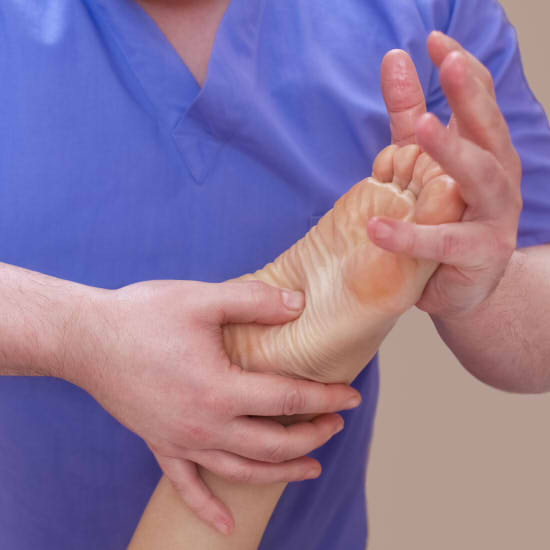Psychology Consultation

Stress/Anxiety Management
Feeling stress is a common experience in daily life, as we are often faced with demands or circumstances that suggest the need to confront something (real or perceived) that causes imbalance. The triggering of physiological, psychological, and behavioral mechanisms is natural and constitutes an attempt to respond and adapt to the perceived threat. However, the impact on a person's performance and functionality is evident, often leading to a series of maladaptive behaviors such as increased irritability, extreme emotional reactions, physical symptoms, mood swings, among others. Learning to prevent, identify, and manage stress-inducing situations is therefore synonymous with acquiring personal and relational skills that promote well-being, both in the present and in the future. Anxiety, on the other hand, arises from a system of constant alertness and tension that impairs the individual's performance and enjoyment of life in various areas, potentially triggering avoidance behaviors, phobias, rituals, obsessions, physical symptoms, sleep disturbances, among other aspects. It may stem from traumatic and impactful events that occurred in the past, as well as current situations that are difficult to manage. Naturally, gaining control over anxiety-inducing behaviors also brings about a perception of greater control over fundamental aspects of daily life.

Emotional and Behavioral Issues
Difficulty in impulse control, low frustration tolerance, restlessness, increased aggression or reserved contact in relationships with others, feelings of sadness or euphoria, and avoidance are some of the components that characterize greater difficulty in managing communication and adjustment in daily life activities. Developing potential in the area of emotional intelligence, therefore, means making better decisions (conscious, well-founded, and properly explored), adopting a critical behavior towards one's own limits and those of others, adjusting communication mechanisms, investing in self-awareness, developing feelings of compassion and trust, and being more creative in problem-solving. Therefore, the development of this area substantially promotes better performance in activities, whether they are professional or more personal in nature, as well as the development of relational skills (e.g., romantic and familial relationships).

Promotion of adaptation to new life situations
Words, behaviors, and life situations (experiences) generate psychological states that often influence how a person functions (how they deal with such situations). In the long term, when greater difficulty in adaptation is observed, the emotional tension triggered can potentially lead to emotional suffering. We're talking about individual situations that are generally associated with professional, personal, and interpersonal aspects (e.g., change of job position, changes in family dynamics, functional losses, changes in societal roles, change of course/school area, among others). Personal traits can and should be taken into account when assessing a person's reaction to different changes, promoting their own coping style in relation to the world. Therefore, the assessment and intervention of a specialized professional in promoting strategies that enable greater adaptability and consequent sense of well-being and comfort are invaluable.

Mood Disorders
Mood disorders are characterized by their significant impact on a person's life. Depressive disorder has a significant prevalence in the Portuguese population and is characterized by feelings of sadness, loss of interest or pleasure, feelings of guilt or low self-esteem, changes in sleep or appetite, fatigue, and poor concentration. It may have a more circumstantial nature, resulting from a significant life event such as the death of a family member, or it may be enduring, substantially impairing professional and personal life, family relationships, among other aspects. Among these types of disorders, Bipolar Disorders and others of different etiology are also noteworthy, less common among the Portuguese population, but also subject to intervention.

Prevention of psychosocial risks
One area of intervention in this field relates to professional activity, particularly the work environment and its nature, as they significantly influence a person's health. Psychosocial risks go hand in hand with work-related stress (demands and pressures that are not compatible with one's knowledge and skills and challenge their coping capacity). Burnout, the physical, emotional, and mental exhaustion associated with this area, specifically results from this imbalance. This situation triggers a series of manifestations in the individual, such as feelings of physical and psychological exhaustion, inability to give more of oneself, lack of energy, fatigue, distant relationships, negative and inappropriate attitudes, loss of idealism, increased irritability, feelings of incompetence, lack of confidence and productivity, inability to respond to demands and manage work-related and/or personal life situations, or, on the other hand, feelings of omnipotence, which may be accompanied by a progressive loss of confidence from colleagues and superiors. It is, therefore, a complex and multidimensional area of intervention that requires specialized assessment and intervention. Another aspect is optimizing professional performance. While preventing Burnout situations, individuals are also empowered to maximize their potential. Depending on their personal characteristics and external circumstances (location, time, goals to achieve, expected behavior/behavior to achieve), it is possible to extract the best from the individual.

